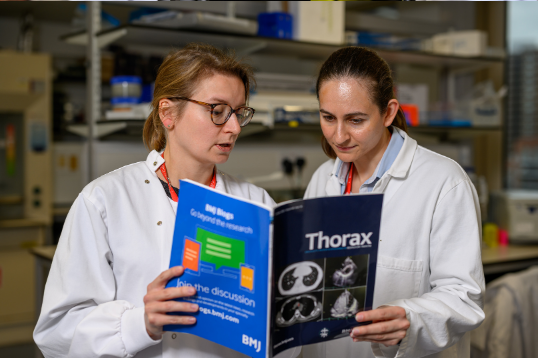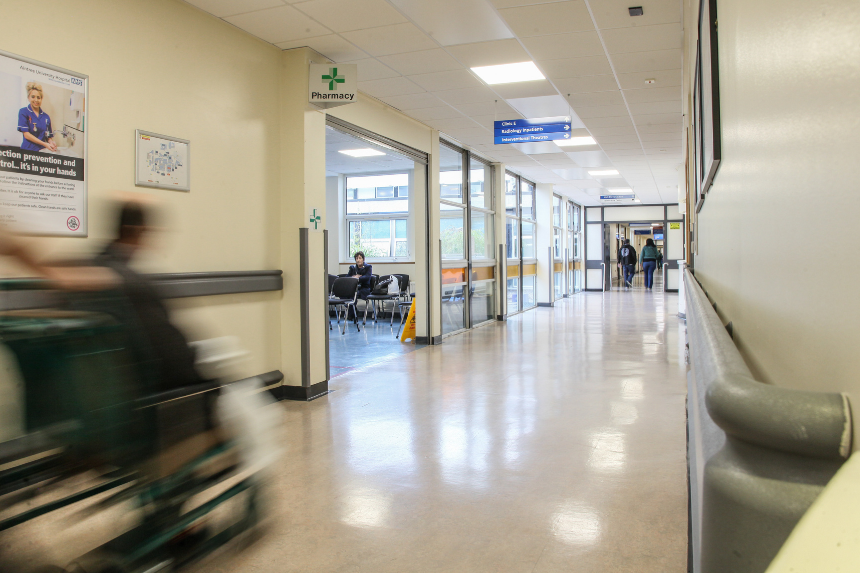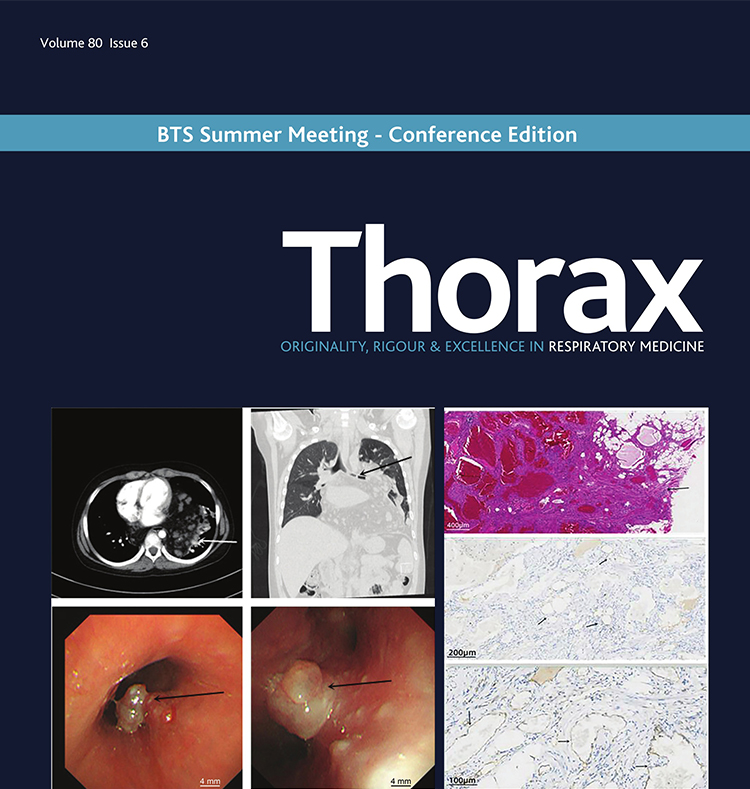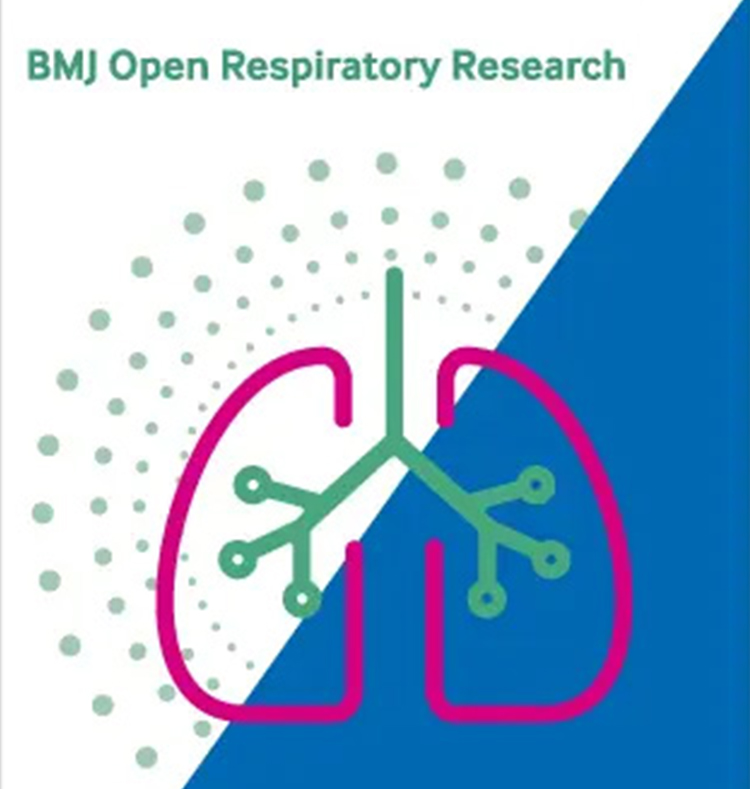The BTS survey among 247 UK NHS lung specialists found that over 8 in 10 (83%) saw respiratory healthcare staff shortages as impairing the ability of the NHS to cope with the increase in lung disease hospital admissions during the winter.
The survey is launched at the same time as new data which reveals that:
- the number of attendances at A&E departments in England for lung illnesses has more than doubled over an 8-year period (2010/11 – 2018/19) – with over 1.1 million A&E attendances between April 2018 and March 2019
- the winter months see an almost doubling of hospital admissions resulting from A&E attendances for respiratory disease – with lung problems the lead cause of ‘excess winter deaths’
The survey also spotlights an under-pressure lung specialist workforce, with the majority of respondents seeing increases in all of the following issues in the previous 12 months - periods of extreme workload, staff sickness and absence, and additional unpaid hours being delivered. An increase in patient waiting times for hospital outpatient appointments was also reported by the majority.
Another study presented at the Meeting by Dr Shahbaz Piracha, of the Royal Wolverhampton NHS Trust, reveals that over half of the respiratory physicians studied felt burnt out.
A wide range of research highlights the extent of lung workforce deficiencies:
- In 2019, 50% of hospitals surveyed across UK had at least one vacant respiratory consultant post – an increase of 10% since 2015
- Nearly half of respiratory nurses either plan to retire or are eligible for retirement within 10 years
- There are a high number of lung services running on a limited physiology workforce, which is critical to delivering and interpreting diagnostic tests. 16% have only one qualified specialist and waiting times for lung function testing (and other tests) have increased since 2005.
The survey also probed specialists’ views on how the NHS is currently tackling winter pressures - and how it should do so in the future. The results showed the following:
- Nearly 9 in 10 (89%) respondents said national funding for the local NHS on managing winter pressures is welcome – but is often ‘too little too late.’
- Nearly 9 in 10 (85%) believe national NHS winter pressures plans should have a greater long-term focus on preventative activity and care in the community to reduce respiratory hospital admissions in the first place
- Over 2/3 (67%) think that greater patient access to pulmonary rehabilitation (exercise and education programmes for lung disease patients) is vital to reducing winter pressures
- 1 in 2 (50%) believe that the NHS must urgently look at new ways to increase the uptake of the flu vaccine in at-risk groups
- Three quarters (75%) support legislation to ensure safe staffing levels in NHS
Encouragingly, the survey also indicates that some positive progress is being made to combat winter pressures - with 6 in 10 (61%) respondents stating that their local NHS organisation had adopted some new practices in the last 12 months to cope with the increase in respiratory disease hospital admissions during the Winter. These included:
- Viral/flu testing being undertaken in A&E rather than the laboratory to speed results and treatment decisions
- Same Day Emergency Care (streamlining hospital diagnosis and care so appropriate patients can be discharged on the same day helping reduce admissions) and nurse-supported early discharge.
But nearly 2/3 (64%) of respondents said that national policy makers must acknowledge the respiratory workforce issue and plan urgent solutions. Solutions highlighted in the survey and other studies – include the need for:
- An additional 100 respiratory speciality doctor training posts to be created over the next 5 years
- Greater investment in respiratory education and training for both specialist and generalist healthcare professionals
- The creation of more integrated consultant roles – delivering care to people with long term conditions across both hospital and community settings
- More flexibility and part time roles
- Policies to boost numbers of specialist nurses and physiotherapists, who are key to community outreach work, enabling patients to be treated at home
Delegates at the Meeting will discuss how the NHS can reduce winter pressures at a key policy debate ‘Always snowed under. How can the NHS manage, and reduce, winter pressures more effectively?’ #BTSWinter2019 #Winterthinktank
Professor Jon Bennett, Consultant Respiratory Physician and Chair of the British Thoracic Society’s Board, said:
“We have hard-working and innovative teams of lung specialist doctors, nurses and allied health professionals doing all they can to give patients with lung disease the best possible care. Lung specialists play a critical role in diagnosing and treating patients with severe breathing problems but also other health conditions in our hospitals. This is so pivotal in the winter when we see a big spike in people coming to hospital with ‘flu, pneumonia and other winter illnesses.
"We have a perfect storm here. There are rising numbers of people needing hospital attention for their lung and breathing problems with a lack of specialist staff to deal with the surge. The system could buckle and is only being held together by the good will of specialist staff working unpaid extra hours & forgoing holiday to cover staff shortages and meet increasing demand.
"Many feel burnt out, undervalued and understaffed whilst valiantly trying to cope with the large numbers of people being admitted to hospital with lung disease – especially in the Winter."
This survey is a red flag to the NHS – current staff shortages are at a critical level and must be addressed in the final NHS People Plan. Short and long-term staff investment will help address the critical winter ‘surge’ of demand - but also deliver the positive policies for better national lung health in the NHS Long Term Plan.”
ENDS
For more information prior to the British Thoracic Society Winter Meeting (i.e. before Wednesday 4th December 2019):
Please contact:
Charlotte Sutton: t: 07958 279240
charlotte.sutton@audiencesocialmarketing.com
Alessandra McKenna t: 07967 976652
alessandra.mckenna@audiencesocialmarketing.com
Ed Gyde t: 0780 9574801
ed.gyde@audiencesocialmarketing.com
During the British Thoracic Society meeting (from Wednesday 4th to Friday 6th December 2019):
Please contact the BTS news media office on t: 020 7798 4541 / 020 7798 4542 or the mobile numbers above.
Note to Editors:
The British Thoracic Society is the UK’s professional body of respiratory specialists. The Society seeks to improve standards of care for people who have respiratory diseases and to support and develop those who provide that care. A registered charity, it has about 3,700 members including doctors, nurses, respiratory physiotherapists, scientists and other professionals with a respiratory interest.
The British Thoracic Society Winter Meeting takes place between 4-6 December 2019 at the Queen Elizabeth II Conference Centre in Westminster, London.
London, London WC1N 2PL
 05/10/2023 15:03:46
British Thoracic Society
05/10/2023 15:03:46
British Thoracic Society







